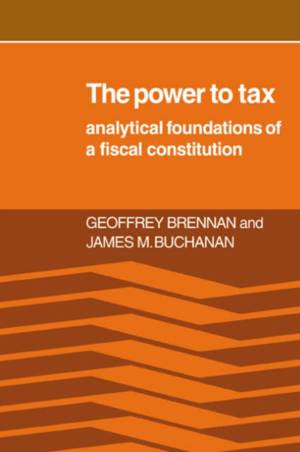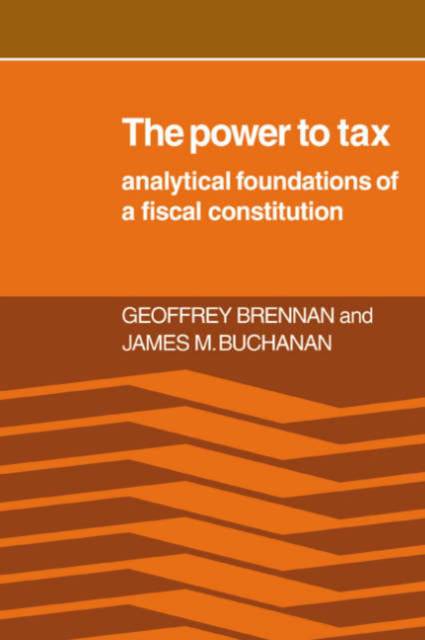
- Afhalen na 1 uur in een winkel met voorraad
- Gratis thuislevering in België vanaf € 30
- Ruim aanbod met 7 miljoen producten
- Afhalen na 1 uur in een winkel met voorraad
- Gratis thuislevering in België vanaf € 30
- Ruim aanbod met 7 miljoen producten
Zoeken
The Power to Tax
Analytic Foundations of a Fiscal Constitution
H Geoffrey Brennan, James M Buchanan, Geoffrey Brennan
Paperback | Engels
€ 77,95
+ 155 punten
Omschrijving
Should government's power to tax be limited? The events of the late 1970s in the wake of California's Proposition 13 brought this question very sharply into popular focus. Whether the power to tax should be restricted, and if so how, are issues of immediate policy significance. Providing a serious analysis of these issues, the authors of this 1980 book offer an approach to the understanding and evaluation of the fiscal system, one that yields profound implications. The central question becomes: how much 'power to tax' would the citizen voluntarily grant to government as a party to some initial social contract devising a fiscal constitution? Those in office are assumed to exploit the power assigned to them to the maximum possible extent: government is modelled as 'revenue-maximizing Leviathan'. Armed with such a model, the authors proceed to trace out the restrictions on the power to tax that might be expected to emerge from the citizen's constitutional deliberations.
Specificaties
Betrokkenen
- Auteur(s):
- Uitgeverij:
Inhoud
- Aantal bladzijden:
- 248
- Taal:
- Engels
Eigenschappen
- Productcode (EAN):
- 9780521027922
- Verschijningsdatum:
- 2/11/2006
- Uitvoering:
- Paperback
- Formaat:
- Trade paperback (VS)
- Afmetingen:
- 152 mm x 229 mm
- Gewicht:
- 367 g

Alleen bij Standaard Boekhandel
+ 155 punten op je klantenkaart van Standaard Boekhandel
Beoordelingen
We publiceren alleen reviews die voldoen aan de voorwaarden voor reviews. Bekijk onze voorwaarden voor reviews.











